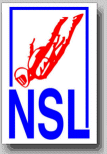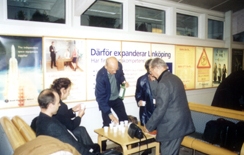
National
Skydiving
League
226 Pecan Street
Deland FL 32724
tel: (386) 801-0804
© 2003 - 2024
All Rights Reserved


226 Pecan Street
Deland FL 32724
tel: (386) 801-0804
© 2003 - 2024
All Rights Reserved


However, there are more indications that the "3-year-rule" issue may have been settled to the advantage of new Sinapsi PD member Pete Allum.
The agenda for the CASI meeting included additional information, which served as guidance for the commission members to make an educated and reasonable decision. FAI Secretary General Max Bishop was determined to resolve the whole FAI issue of confusing rules as of sporting licenses and national repesentation: "The aim of this paper is to provide a basis for CASI to make decisions on how the General Section rules may be revised in such a way that the shortcomings listed above are eliminated."
Italy's appeal to the CASI ruling in the "Pete Allum Case" gave the FAI and Max Bishop a reason to look at the bigger picture and evaluate the whole current set of rules for issuing FAI sporting licenses and national representation at international events.
Max Bishop's evaluation, which was attached to the agenda of the CASI meeting, began with general background information, which is only indirectly related to the "Pete Allum Case":
| The current rules in the General Section (GS 8.1.3.6.) make no clear distinction between the holding of a FAI Sporting Licence and National Team membership. Implicitly, a person who holds a Sporting Licence from a certain country is assumed to represent that country in any FAI sporting activity in which he participates. The rationale for the “3 year rule”, which prohibits a person from representing a new country in 1st Category competitions for a period of 3 years after representing his original country, is unclear. Also, the method used to calculate the 3-year period is not made explicit in the rules and is a matter for controversy. The existing rules discriminate unfairly against persons with dual nationality, treating them less favourably than someone with only one passport who merely resides in a country of which he is not a citizen. |
This statement by FAI Secretary General Max Bishop already shows clear enough that he saw corrections of the current rules as inevitable. He encouraged the CASI members to discuss four different topics, including the "3-Year-Rule". However, his intention was to clean up the whole set of rules, which would include much more than only the exact definition of "three years".
| Issue of Sporting Licences The FAI Sporting Licence is the document that allows FAI to maintain control over international air sport. It is therefore vitally important. No person should be permitted to hold two or more licences from different countries simultaneously. Citizenship should take priority over place of residence. If a person possesses a valid passport, he should be entitled to hold a Sporting Licence from the country that issued the passport, regardless of where he lives. However, there must also be provision for a person who lives in a country of which he is not a citizen to hold a Sporting Licence from that country (having first surrendered the Licence from his country of citizenship), if he so wishes. |
Max Bishop's second topic put the general representation of countries by their national team members or world record holders on the discussion list. The "3-Year-Rule" was the third topic of his paper, and the situation of a dual citizenship completed his thoughts and an overview of the current situation.
| The 3-Year Rule The reason for the “3-year rule” is not made explicit in FAI rules, but probably has to do with the wish to prevent “sports tourism” and “flags of convenience”. It would bring the FAI into disrepute if we allowed top competitors who were dropped from their national teams immediately to start representing another country by establishing a residence there. However, not all international federations have this rule. Some – even Olympic - international federations require only a one-year period of quarantine. Three years is a very long time in the career of elite sportsmen. It is for consideration whether the period could be shortened without significant disadvantage to any parties (FAI, NACs or competitors), perhaps by relating it more closely to the intervals between World Championships (generally 2 years), and writing the rule in such a way that a competitor cannot represent different countries in 2 consecutive World Championships. For the avoidance of controversy, the calendar year could be used as the basis for calculation of the banned period. For example, the rule could be written in such a way that, if a competitor represented Country “A” at any 1st Category competition that took place in (or partly in) the calendar year 2005, he would be totally banned from participation in 1st Category competitions as a National Team member of Country “B” in the calendar year(s) 2006 (and 2007, 2008…, depending on the length of period selected). |
FAI Secretary General Max Bishop came up with his own conclusions in this discussion paper on the agenda information for the CASI meeting. Max Bishop's thoughts, information and his conclusions obviously provided the foundation for a different result compared to the first CASI May decision in the "Pete Allum Case". It would be no surprise any longer if the rumors from Paris will soon be confirmed. Based on Max Bishop's discussion paper, Italy's appeal had good chances to be successful:
| Conclusions Current FAI rules on Sporting Licence issue and national representation are confusing, unclear and in some respects unfair and unnecessarily harsh. They need to be substantially revised. The principles on which the revision is based should be: 1. A clear distinction between holding a Sporting Licence and National Team membership. Recommendations At Annex A is a suggested re-draft of the rules in GS 3.7.2.1. and 8.1.3.6., based on the above principles. Max BISHOP |
Max Bishop's recommendations basically confirm the arguments of the Italian appeal, even though his general thoughts are not targeted directly at the "Pete Allum Case". He has used the time between the CASI decision in May and this week's meeting in Paris to encourage for a general clean-up effort as of the according FAI rules.
The official details of the new set of rules are still not known yet, and the NSL News will follow up as soon as the information becomes avalable.